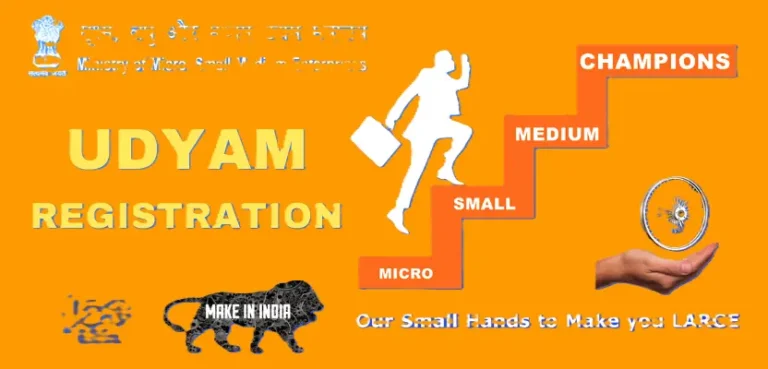Boost your small business with the MSME Subsidy Scheme 2024. Discover how this government initiative provides financial assistance and incentives to Micro, Small, and Medium Enterprises (MSMEs). Find out about the eligibility criteria, types of subsidies offered, application process, and the impact on business growth. Don’t miss the opportunity to enhance competitiveness, promote innovation, and access affordable credit. Read now!
Small and Medium Enterprises (SMEs) play a crucial role in driving economic growth and employment opportunities. Recognizing their importance, governments worldwide often introduce subsidy schemes to support and nurture these enterprises. In 2024, the Indian government has launched the MSME Subsidy Scheme to provide financial assistance and incentives to Micro, Small, and Medium Enterprises (MSMEs). This article delves into the details of the MSME Subsidy Scheme 2024 and its impact on the growth and development of small businesses in India.
What is the MSME Subsidy Scheme 2024?
The MSME Subsidy Scheme 2024 is a government initiative introduced to provide financial support and incentives to Micro, Small, and Medium Enterprises (MSMEs) in India. The scheme aims to address various challenges faced by small businesses and facilitate their growth and development by offering subsidies on capital investments, interest payments, and technology upgradation.
Eligibility Criteria for the MSME Subsidy Scheme
To avail the benefits of the MSME Subsidy Scheme, enterprises must fulfill certain eligibility criteria set by the government. These criteria may include factors such as the business’s age, size, annual turnover, and compliance with regulatory requirements. The specific eligibility requirements may vary depending on the nature of the subsidy and the region in which the enterprise operates.
Types of Subsidies Offered
The MSME Subsidy Scheme 2024 provides three main types of subsidies to eligible MSMEs: capital subsidy, interest subsidy, and technology upgradation subsidy.
Capital Subsidy
Under the capital subsidy component of the scheme, MSMEs can receive financial assistance to support their investments in machinery, equipment, infrastructure, and other fixed assets. This subsidy aims to alleviate the financial burden on small businesses and encourage them to upgrade their physical assets, thereby enhancing productivity and competitiveness.
Interest Subsidy
The interest subsidy component of the scheme aims to reduce the cost of borrowing for MSMEs. Eligible enterprises can avail of subsidized interest rates on loans obtained from approved financial institutions. This helps ease the financial burden on small businesses and promotes their access to affordable credit for various purposes, such as working capital, expansion, or technology adoption.
Technology Upgradation Subsidy
In today’s rapidly evolving business landscape, embracing technology is crucial for the success of MSMEs. The technology upgradation subsidy offered through the scheme incentivizes small businesses to adopt modern technologies and upgrade their production processes. This subsidy covers a portion of the expenses incurred in procuring and implementing new technologies, software, or equipment, thus enabling MSMEs to improve efficiency, quality, and product offerings.
We are available to answer your questions. Send us a WhatsApp message and we’ll respond as soon as we’re available! Send us a WhatsApp message.
Application Process for the MSME Subsidy Scheme
To benefit from the MSME Subsidy Scheme 2024, eligible enterprises must follow a well-defined application process. The government provides an online portal where MSMEs can submit their applications and supporting documents. The application process typically involves registering on the portal, providing essential details about the business, and submitting the necessary documents for verification. After a thorough evaluation, the authorities determine the subsidy amount and notify the applicant.
Benefits and Impact of the MSME Subsidy Scheme
The MSME Subsidy Scheme 2024 offers several benefits and has a significant impact on the growth and development of small businesses in India.
Financial Support for MSMEs
The scheme provides much-needed financial support to MSMEs, enabling them to overcome capital constraints and invest in their growth. The subsidies offered on capital investments, interest payments, and technology upgradation reduce the financial burden on small businesses and contribute to their overall financial stability and sustainability.
Promoting Innovation and Technological Advancement
By encouraging technology upgradation and providing subsidies for adopting modern technologies, the scheme promotes innovation and technological advancement among MSMEs. This enables small businesses to enhance their operational efficiency, streamline processes, and stay competitive in a rapidly evolving business environment.
Enhancing Competitiveness
The MSME Subsidy Scheme plays a crucial role in enhancing the competitiveness of small businesses. By providing subsidies that support capital investments, interest payments, and technology upgradation, the scheme enables MSMEs to improve product quality, reduce production costs, and offer competitive pricing to customers. This helps small businesses compete effectively with larger enterprises, both in domestic and international markets.
Boosting Employment Opportunities
Small businesses are significant contributors to employment generation. The MSME Subsidy Scheme’s financial assistance enables MSMEs to expand their operations, invest in new technologies, and hire additional employees. This, in turn, leads to the creation of more job opportunities, thereby contributing to economic growth and reducing unemployment rates.
Strengthening the Economy
The growth and development of MSMEs have a direct positive impact on the overall economy. By supporting the expansion and sustainability of small businesses, the MSME Subsidy Scheme plays a crucial role in strengthening the national economy. It fosters entrepreneurship, encourages innovation, and contributes to increased GDP growth, export competitiveness, and overall economic development.
Challenges and Limitations
While the MSME Subsidy Scheme 2024 offers significant benefits, it is essential to acknowledge the challenges and limitations it may face. Some of the common challenges include:
- Limited awareness: Many MSMEs may not be aware of the scheme or its eligibility criteria, which can hinder their ability to avail of the subsidies.
- Application complexities: The application process may involve several steps and the submission of various documents, which can be time-consuming and challenging for some small businesses.
- Limited funding: Depending on the government’s budgetary allocation, the availability of subsidies may be limited, potentially leading to a higher demand than the resources can accommodate.
Despite these challenges, the government continues to make efforts to streamline the scheme and address the concerns faced by MSMEs to ensure maximum participation and impact.
Success Stories: MSMEs Benefiting from the Scheme
The MSME Subsidy Scheme 2024 has already showcased several success stories where small businesses have benefited from the subsidies. These success stories highlight how the scheme has helped MSMEs overcome financial constraints, upgrade their technology, expand their operations, and achieve sustainable growth. Such success stories inspire other small businesses to take advantage of the scheme and propel their own growth journeys.
Top 14 MSME Subsidies in India for New Businesses and MSMEs
Micro, Small, and Medium-Sized Enterprises (MSMEs) have been important in developing a desire to start businesses among the general public of India. Currently, India has 6.34 crore MSMEs operating in a variety of industries. By 2024, the government hopes to have employed 15 crore people while increasing MSMEs’ share of India’s GDP to 50%.
Only by ensuring that MSMEs continue to have enough access to money and technology, as well as the required skill set, can these goals be accomplished. To help the MSME sector flourish, the government has been offering subsidies through a number of schemes. Several of these are listed below:
1) Credit Guarantee Fund Trust for Micro and Small Enterprises (CGTMSE)
The MSME ministry and SIDBI collaborated to create the CGTMSE trust in order to allow credit guarantee support for loans to both new and existing MSMEs that are collateral-free and third-party guarantee-free. The Credit Guarantee Scheme for Micro and Small Enterprises was put into place by this trust. For loans up to Rs. 2 crores, credit guarantee coverage is offered; the percentage ranges from 50% for retail businesses to 85% for micro-enterprises.
2) Prime Minister’s Employment Generation Programme (PMEGP)
PMEGP places a strong emphasis on creating jobs through supporting the development of microbusinesses in the non-farm sector. MSMEs are eligible for loans under the PMEGP of up to Rs. 50 lakhs for manufacturing and Rs. 20 lakhs for services. For projects centred in urban and rural regions, these loans are provided at discounted rates of 15% and 25%, respectively.
PMEGP is a credit-linked subsidy scheme that offers additional support in the form of increased subsidy rates of 25%–35% to applicants from NER, hilly, border, SC/ST/OBC, and physically disabled groups.
3) 2nd Loan for Up-gradation of the Existing PMEGP/Mudra Units
This programme offers financial support to current MSME units that want to grow and modernise. 15% of the project’s overall cost is supplied as a loanable subsidy. For units developed in NER and hill states, the subsidy rises to 20%.
4) Micro and Small Enterprises Cluster Development Programme (MSE-CDP)
The government has chosen a cluster development strategy to build and improve infrastructure in new and existing MSMEs. The government offers qualifying MSMEs grants for the creation of common facility centres (CFCs) that are restricted in the range of 60%-70% depending on the project cost, up to a maximum of Rs 30 crores. For CFCs established in the NE and hill states, islands, and aspirational districts, these grants are increased to 70%–80%.
5) National SC-ST Hub Scheme
The SC/ST entrepreneurs searching for professional help through Stand-Up India programmes are the target audience for this scheme. 25% of the cost of new equipment is subsidised. Additionally, vendor development schemes include marketing and mentoring assistance. Additionally, the transaction fees paid are covered. The Special Marketing Assistance Scheme, Single Point Registration plan, Bank Loan Processing Reimbursement Scheme, etc., are only a few of the sub-schemes that make up this main scheme.
6) MSME Competitive LEAN Scheme (MCLS)
Lean manufacturing practises are being incorporated into the production processes by MCLS in an effort to increase the productivity and competitiveness of MSMEs. 90% of the implementation costs are covered by financial support in order to boost productivity.
7) MSME Sustainable (ZED) Certification
To carry out tasks for zero defect and zero effect (ZED) certification, such as evaluation, rating, gap analysis, handholding, etc., MSMEs are given financial help under the ZED plan. Small and medium-sized businesses receive subsidies in the amounts of 80%, 60%, and 50%, respectively.
MSMEs that are owned by SC/ST/women or are located in NER/Himalayan/LWE/islands/aspirational areas receive an additional 10% subsidy. A 5% extra subsidy is given to MSMEs participating in the SFURTI or MSE-CDP programmes.
8) MSME Innovative Scheme (Incubation, Design and IPR)
By providing financial support of up to Rs 1 crore for plant and machinery at the time of incubation, this programme helps MSMEs commercialise their ideas, designs, and patents. A 75% (micro) and 60% (small & medium) subsidy on the overall project cost would be provided for design projects, up to a maximum of Rs. 40 lakhs. In addition, awards in the amount of Rs. 1 crore would be given for IPR.
9) Interest Subsidy Eligibility Certificate (ISEC)
The ISEC plan intends to provide funding for khadi activities run by MSMEs with khadi and polyvastra roots. This programme provides financing for working capital at a 4% discount rate. The central government is responsible for paying the lending banks’ interest difference through KVIC.
10) Promotion of MSMEs in North Eastern Region and Sikkim
The scheme aims to give MSMEs in the NER and Sikkim financial support for capacity building and productivity enhancement. Up to Rs. 13.5 crores in financial support would be given to help build up industrial parks and small technology hubs.
11) Fund of Funds Scheme for MSMEs: Self Reliant India (SRI) Fund
This FoF scheme was established to offer finance assistance in the form of quasi-equity financing or equity to MSMEs with the potential to surpass the MSME threshold and become national champions. The monies totaling Rs. 50,000 crores will be allocated in stages in accordance with the demands put up by the daughter funds that have been appointed.
12) Credit Support from National Small Industries Corporation (NSIC)
NSIC is responsible for assisting MSMEs by providing loans and marketing assistance. By offering credit support in the following ways, it supports the operations of MSMEs:
- RMA for raw materials in exchange for a bank guarantee
- Bank-based credit facilitation
- Bill discounting
13) Technology and Quality Upgradation Support (TEQUP) for MSMEs
TEQUP seeks to increase MSMEs’ awareness of the benefits of using energy-efficient technology to cut costs and GHG emissions. MSMEs can get a subsidy of up to 25% of the project cost, up to a maximum of Rs. 10 lakhs, for integrating energy-efficient technology into their processes.
In addition, MSMEs are given a subsidy of 75% of the actual cost of obtaining product certification permits, up to a maximum of Rs. 1.5 lakhs.
14) Pradhan Mantri Mudra Yojana (PMMY)
PMMY was introduced in 2015 to offer non-farm MSMEs Mudra loans of up to Rs. 10 lakh. Micro Units Development and Refinance Agency is an NBFC, and its name is Mudra. Three categories are used to group the loans:
Up to Rs. 50,000 for Shishu
Kishore: From 50,000 to 5 lakhs of rupees.
From Rs. 5 lakhs to Rs. 10 lakhs, Tarun
These loans are collateral-free and protected by the National Credit Guarantee Trustee Company Limited’s (NCGTC) Credit Guarantee Fund for Micro Units (CGFMU).
This is by no means a comprehensive list. The government keeps introducing programmes to help specialty occupations like those of craftsmen, potters, beekeepers, etc.
MSMEs established in certain industries, such as solar energy, pharmaceuticals, military, textile, cold chain facilities, etc., are also given financial assistance under PLI initiatives.
MSMEs require financial assistance if the economy of our nation is to keep expanding. The government, as well as credit businesses, may offer this help to MSMEs.
Conclusion
The MSME Subsidy Scheme 2024 is a significant initiative by the Indian government to support the growth and development of small businesses.
By providing financial assistance and incentives, the scheme aims to alleviate the financial burden on MSMEs, promote technological advancements, enhance competitiveness, boost employment opportunities, and strengthen the overall economy.
Small businesses are encouraged to explore the scheme’s eligibility criteria and take advantage of the available subsidies to accelerate their growth and contribute to the nation’s progress.
To avail the benefits of the MSME Subsidy Scheme 2024, business owners are required to register their businesses under the Ministry of MSME. This registration is a crucial step in accessing the financial assistance and incentives offered by the scheme. By registering their businesses, entrepreneurs ensure that they meet the eligibility criteria and can take advantage of the subsidies provided.
Avail benefits of the MSME Subsidy Scheme by registering under the MSME Udyam Portal.
Registering under the Ministry of MSME not only opens doors to the subsidy scheme but also grants businesses recognition and access to various other government schemes and support programs. It is essential for business owners to complete the registration process to unlock the full potential of the MSME Subsidy Scheme and propel their businesses towards growth and success.
We are available to answer your questions. Send us a WhatsApp message and we’ll respond as soon as we’re available! Send us a WhatsApp message.
FAQs
Can startups avail of the MSME Subsidy Scheme?
Yes, startups that meet the eligibility criteria can avail of the MSME Subsidy Scheme and benefit from the available subsidies.
Is there a deadline for applying to the scheme?
The government may specify application deadlines for different subsidy components. It is advisable to check the official portal or relevant government notifications for the specific deadlines.
What documents are required for the application process?
The required documents may vary based on the subsidy component and eligibility criteria. Generally, documents such as business registration certificates, financial statements, project reports, and identity proofs of the business owners may be required. It is recommended to refer to the official guidelines for a comprehensive list of documents.
Are subsidies provided on a reimbursable basis?
The subsidies provided under the scheme are typically provided in the form of direct financial assistance or reduced interest rates on loans. They are not usually reimbursable, but the specific terms and conditions may vary.
How can MSMEs stay updated on the latest developments regarding the scheme?
MSMEs can stay updated by regularly visiting the official government websites, subscribing to relevant newsletters or publications, and attending industry events and seminars that provide information about the MSME Subsidy Scheme 2024.
Follow us on Google News




